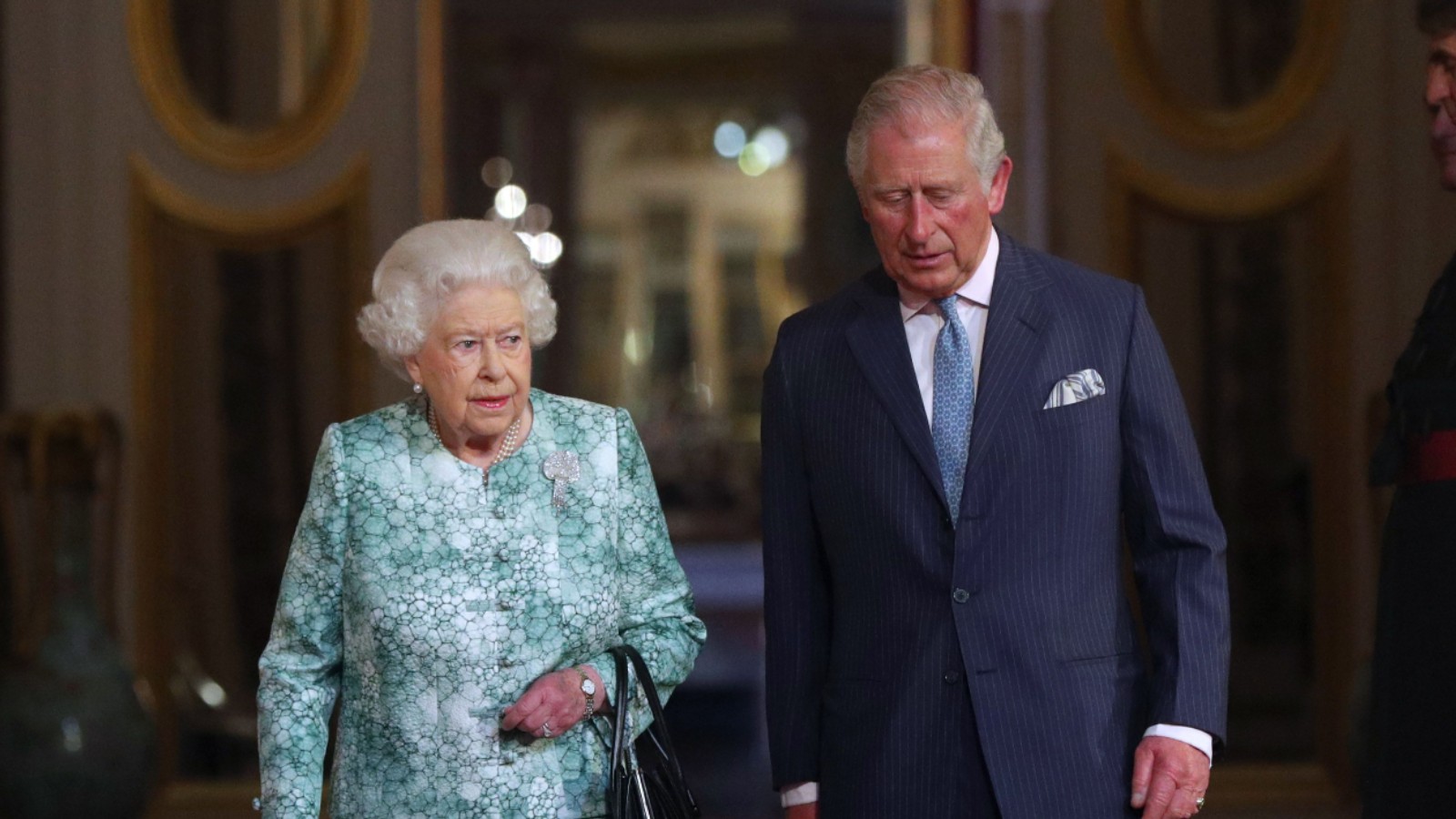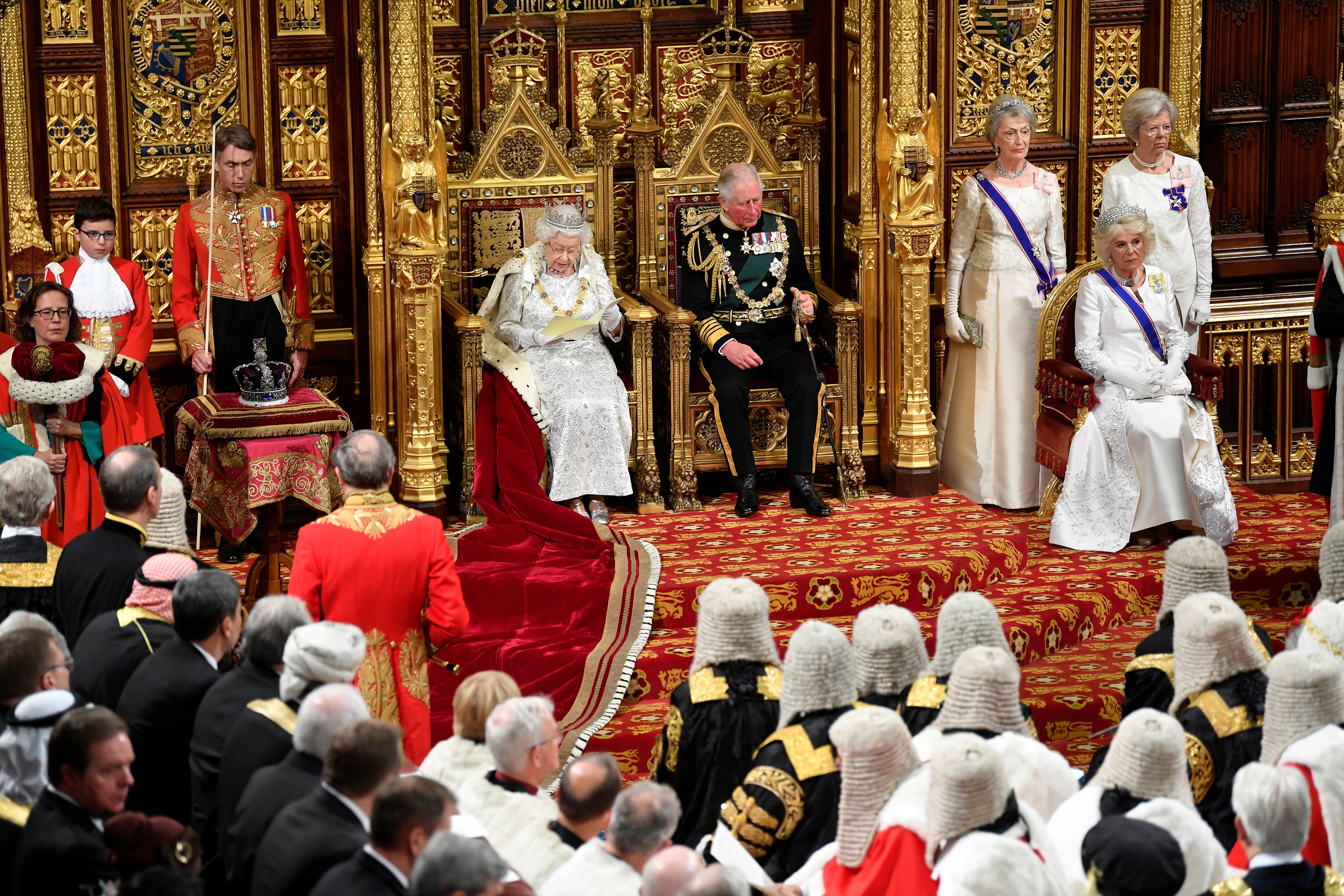The Queen's powers in government as Head of State—what exactly can she do?
The Queen's powers in the UK Parliament may surprise you


She may one of the world's most famous figures, but the Queen’s powers may not be as impressive as you think.
As the matriarch of the Royal Family, the Queen’s ranking in British society is undeniably top-tier.
The 95-year-old, who will celebrate seven decades on the throne with her Platinum Jubilee in July, has long been considered one of the most important public figures in the United Kingdom, carrying an influence that's expanded beyond Britain and throughout its 54 Commonwealth nations.
When the time comes for the Queen to pass, she will be replaced by her eldest son, the Prince of Wales. Speculation about what Prince Charles will be like as King has been brewing now for several years, with many folks skeptical of his ability to fill the large shoes left by his widely popular mother.

The Queen with Prince Charles
Despite also holding the position of Head of State, Her Majesty is arguably more recognized for her duties as Head of Nation. The informal title calls the Queen to embody the values of national identity and unity, whilst also providing a sense of stability and guidance during social change and challenging times.
Public engagements, charity visits, attending celebratory events, and hosting fellow Head of States are just some of the important duties that fall under the prestigious job title.
With such a hectic schedule as Head of Nation, you'd be forgiven for wondering how the Queen makes time for her other job as Head of State.
Sign up to our free daily email for the latest royal and entertainment news, interesting opinion, expert advice on styling and beauty trends, and no-nonsense guides to the health and wellness questions you want answered.
The simple answer? It's not as demanding as you might think.
What are the Queen’s powers as Head of State?
While her lofty title might suggest otherwise, the Queen has relatively little power when it comes to running the country. As Head of State, her role in the UK government is largely ceremonial and symbolic—a longstanding formality, if you will. She is not permitted to publicly express her political beliefs, stand for election, or even cast her own vote, to ensure she maintains total impartiality at all times.
This doesn’t mean the Queen isn’t an important figure in the UK government though. Her Majesty holds a number of key parliamentary duties, many of which are exercised when a new political party comes to power.
Here’s a summary of everything she can do in government—just in case the subject happens to arise at your next pub quiz.

Queen Elizabeth II with Prince Charles, Prince of Wales as she delivers the Queen's Speech during the State Opening of Parliament at the Palace of Westminster on October 14, 2019 in London, England.
Appointment of Government:
Arguably the Queen’s most famous duty as Head of State, the appointment of government is high up on the list of priorities of Her Majesty’s to-do list.
The monarch invites the leader of the party which wins the most votes in the general election to Buckingham Palace, where she will formally call on them to form a new government. The Crown is also responsible for dissolving the previous government before the general election takes place.
State Opening of Parliament:
Once the new government has been selected, the Queen gets straight down to business with the State Opening of Parliament. Her Majesty kicks off the Parliamentary year with an address known as the Queen’s speech, in which she lays out all the government’s policy ideas and strategies for the upcoming term. The event has historically been an extravagant affair, with the monarch traveling to the House of Commons in a state coach and delivering the speech in traditional regal attire.
Royal Assent:
You mightn’t be familiar with the term, but you’ve likely heard a thing or two about this duty. The Queen must give her approval, a.k.a. Royal Assent, when a bill is passed through the House of Commons and the House of Lords, in order for it to be signed into law. She has the right to deny assent but has never exercised it in her 69-year-long reign.

Hailing from the lovely city of Dublin, Emma mainly covers the Royal Family and the entertainment world, as well as the occasional health and wellness feature. Always up for a good conversation, she has a passion for interviewing everyone from A-list celebrities to the local GP - or just about anyone who will chat to her, really.
Emma holds an MA in International Journalism from City, University of London, and a BA in English Literature from Trinity College Dublin.